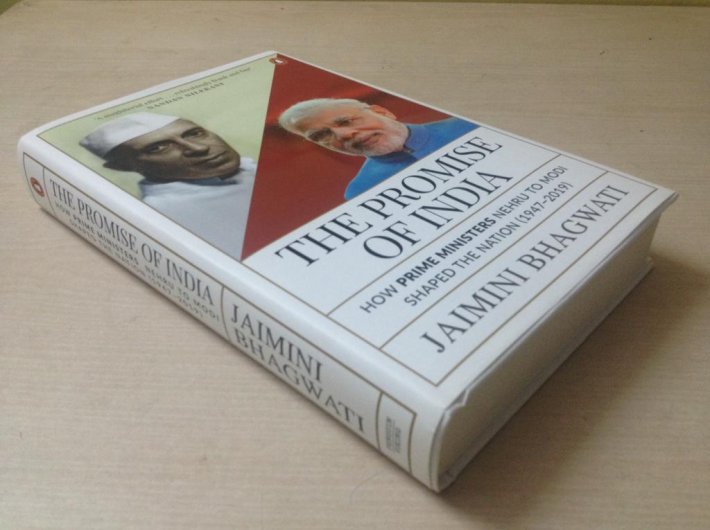Jaimini Bhagwati’s new book is a detailed and balanced history of Indian economy since independence
The Promise of India: How Prime Ministers Nehru to Modi Shaped the Nation (1947-2019)
By Jaimini Bhagwati
Penguin Viking, 385+xxix pages, Rs 799
Is Nehru to be blamed for all the ills plaguing Indian economy, with his protectionism and five-year plans? Equally, is Modi just a show-man with no concrete economic achievements on the ground? In recent years, Indians have been more and more divided in their political views and when it comes to economy hot debates go on without getting the basic facts right.
For all of us, then, Jaimini Bhagwati’s new book will be hugely helpful. ‘The Promise of India: How Prime Ministers Nehru to Modi Shaped the Nation (1947-2019)’ (Penguin) is to economy and foreign policy what Ramachandra Guha’s ‘India After Gandhi’ was to politics: a sweeping, magisterial back story to our present times.
Divisions of chapters by prime ministers here, as mentioned in the subtitle, are no mere ruse of story-telling: In India the economic and foreign policy-making has largely been shaped by the prime minister, following a template set by the first PM. It is no coincidence either that each chapter while detailing the country’s economic progress under the leadership of the prime minister of the day also touches upon foreign policy development during that PM’s tenure. In the cold war times as well as in the globalizing world, domestic economy has remained tied to international currents.
In that case, Bhagwati turns out to be the ideal author to tackle the subject: the former IFS officer has been India’s high commissioner to the UK and ambassador to the EU, as well as an MIT-trained economist with the World Bank and ICRIER, among other institutions. In these highly divisive times, what is most noteworthy about this book is its non-partisan attitude, as the author lists out achievements as well as weaknesses of one PM after another.
The watershed event in India’s economic history was the launch of economic reforms in 1991. It has metamorphosed not just the economy but also society and culture dramatically. The reforms have been subject of innumerable book-length treatments, and also an insider’s view of the history in the making thanks to Jairam Ramesh’s ‘To the Brink and Back: India’s 1991 Story’ plus Sanjaya Baru’s ‘1991: How P.V. Narasimha Rao Made History”.
The scene after 2004 too has been a well-trodden path. If the two keywords of ‘economy’ and ‘prime minister’ are put together, one would first think of Manmohan Singh’s decade-long term, and Modi’s five-plus years so far. Though the developments of this period since 2004 are too recent and specifics of them have been better covered in detail in other works, ‘The Promise of India’ gives a balanced account of the economic performance under the two leaders.
The real value of the book, then, is in dealing with the pre-1991 period, about which few accounts exist for the non-specialist reader. The opening chapter on Nehru sets the tone of the volume: balanced, detailed, perceptive, and yet thrilling to read. Bhagwati painstakingly paints the picture of Nehru’s times: not only in terms of economic policy-making but the first PM’s full task of nation-building, especially the institutions of democracy, while also battling the legacies inherited from the British rulers. (Protectionism, by the way, was the obvious choice after a decade that witnessed the Second World War, Bengal Famine and Partition.)
For those who grew up after 1991, this single volume will be sufficient to get abreast with the back story to what the western press calls the India Story. For a quick summary, either the R.K. Laxman cartoons over the decades, chosen carefully in this book, or tables in the appendix will be a good help.
